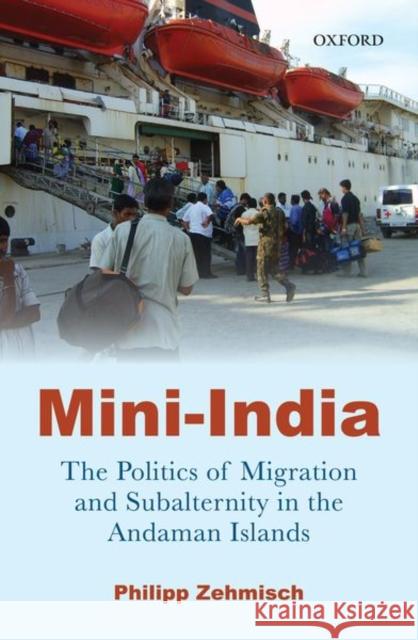Mini-India: The Politics of Migration and Subalternity in the Andaman Islands » książka
topmenu
Mini-India: The Politics of Migration and Subalternity in the Andaman Islands
ISBN-13: 9780199469864 / Angielski / Twarda / 2017 / 343 str.
This contribution to Political Anthropology, Migration Research, and Postcolonial Studies fills a gap in the hitherto under-represented scholarship on the settler society of the Andaman Islands, called Mini-India. The main actors of the book are migrants from criminalised, low-class, low-caste, landless, refugee, repatriated, and Adivasi backgrounds. While some achieved social mobility through their movement to this 'new world' for South Asians, others continued to remain disenfranchised and marginal. This holds especially true for the Ranchis, Adivasi labour migrants from Chotanagpur, who are at the centre of an ethnographic case study in the second part of the book.
Employing the concept of subalternity to investigate political negotiations of island history, collective identity, ecological sustainability, and resource access, the author analyses various shades of inequality arising from communities' material and representational access to the state. Far from merely representing them as vulnerable victims of external domination, the author emphasizes subaltern agency in migration, settlement, and place-making processes. Representing characteristic views, practices, consciousness and voices of subaltern interlocutors, the book demonstrates particular strategies to achieve autonomy, autarchy, and peaceful cohabitation through movement, appropriation, and multi-layered means of resistance.










